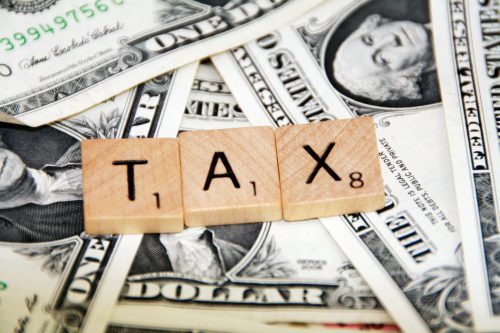
This column goes against my instincts both as a former political scientist and someone who has worked a number of campaigns over the years. The council tonight is being asked to give authorization to proceed with citywide polling on a revenue measure. As much as it pains me to say this – I think they should decline to do the poll.
I want to be clear – I think the city desperately needs to do a revenue measure and I will explain that shortly. However, from what I can tell, a poll is not a good way to proceed.
Two examples of why I believe that:
Back in 2014, the city commissioned a poll. The numbers came out and showed that, while it was close, a parcel tax that required two-thirds vote would not pass. After a lengthy discussion, the council decided not to put even a reduced $50 parcel tax on the ballot in November 2014 and, as a result, the fiscal problems that revenue measure was supposed to address have only gotten worse.
The school district last year had a similar dilemma. Polling showed that a parcel tax at the $620 level would pass, but it was questionable, based on the polling that a $740 or $960 would not pass. While a clear case could be made that the district needed more than just a status-plus cost-of-living adjustment, the school board went with the risk averse approach and the measure passed with more than 70 percent support.
The problem is that now the teachers are pushing back on the district because of their relative low wages and benefits and the district, having not asked for more in the last round, will face the potential need for another parcel tax ballot measure.
In both cases it was not revenue need but the polling that drove the decisions made by the respective governing bodies for the city and school district. And, while a governing body needs to take into account the electability of a revenue measure, at some point difficult decisions are required. There are revenue needs for both bodies that were not addressed because they took the risk-averse approach, and as a result, we are now in the position where both bodies will likely need to ask for money in the near future.
The revenue needs for the city are extremely clear. The work of the Finance and Budget Commission along with consultant Bob Leland has demonstrated that the average annual shortfall in funding is about $7.8 million over the next 20 years.
While some believe that is a low number, the current reality is that, in the short term, the city needs a revenue measure combined with a strong cost containment approach from the city. In the longer term, the city should have the goal of economic development to expand its source of tax revenue from the private sector.
City Manager Dirk Brazil summarized the situation in his transmittal letter to the city council back in June: “We continue to see stability in our revenue streams, with notable growth in property 
and sales tax,” he wrote. “Although revenue is currently stable, the City’s expenditure obligations continue to grow. CalPERS announced a change to its pension discount rate over the next three years, effectively increasing the city’s annual pension obligations going forward. While the city continues to fully fund Other Post Employment Benefits (OPEB), also known as retiree medical, those costs will also continue to rise in coming years.”
He continued, “Outside studies show the city needs to commit up to $8.3 million annually toward transportation infrastructure to maintain a suitable pavement criteria index, compared to the $4.4 million proposed for the budget in 2017/18. Finally, the City is in various stages of negotiations with all employee bargaining units, creating some uncertainty related to the 2017/18 budget and beyond.”
Staff estimates that perhaps a $270 a year parcel tax, perhaps bumped up a notch or two, is a good starting place to address long-term revenue needs.
But what happens if the council polls the voters and finds that they are not willing to support such a parcel tax?
For example, the last time the city performed a poll of this sort was in June of 2014. The pollsters at that time asked 504 Davis residents a variety of questions to not only gauge satisfactions with city services, but gauge their level of interest in a hypothetical ballot measure.
At that time, “46.5% of the respondents said they would definitely or probably support a $149 parcel tax and 44.1% said they definitely or probably would not.”
Maintenance of bike paths, parks, roads and greenbelts were the actions that would make voters more likely to vote in favor of a measure. The activities that would make people less likely to vote in favor were construction of a new pool and developing a new sports complex.
But the polling also showed something else that was important to interpreting the results of the poll. Most people felt at the time that the city’s fiscal picture was fair or better. The polling results showed that most people did not have an appreciation for the precarious nature of the city’s budget or why it needed additional revenue.
In other words, the polling should have been a message to council that they should simply have embarked on an educational campaign to inform the citizens of the nature of the city’s finances.
In the last year and a half, the city discussion has become a lot more honest about the nature of its fiscal challenges than it was from 2014 to 2016 – when the message from city hall was that of a balanced budget with a healthy reserve, which ignored the deferred maintenance and unfunded liabilities that create the more realistic budget picture.
But here we are and it is already approaching late October, just a few months before council has to make a final decision on the budget and with the holidays coming up in between. Polling is simply going to deter the council from asking the voters for what they need.
The reality is that polling would help if it allowed the council to understand where to focus its message and how. But history has shown governing bodies are unwilling to take a chance and ask for what they need. Instead, they ask for what they believe they can get and then worry about the rest later.
As we have seen, that approach is problematic.
—David M. Greenwald reporting







Would pass or would not pass?
Sorry should have been “would not pass.”
K, as pointed out before, I donate what time I can to the Vanguard (which is not always as soon as David posts articles) and the articles are posted before I have access to proof them. The “not” has been added.
cathy a
Since I’m advocating for a utilities tax I would like to see the poll taken to see if it might have support. I feel a utilities tax is the better way to go because everyone will pay their fair share instead of only the homeowners once again getting stuck with paying the whole enchilada. I just looked at my property tax statement and I’m paying close to $2200 in extra add on local taxes. I think it’s time to share the burden with the whole town, not just homeowners.
Like students, renters and businesses? Perhaps the cow with hole in its stomach?
This comment is not accurate. Many of the parcels in Davis are investor-owned. These investors would not share ANY of the burden of a UUT while their Davis investments continue to benefit from the sacrifices made by others in the Davis community.
Yes, the sacrifices of homeowners who live in and pay parcel taxes on their homes. A utilities tax ensures that everyone has skin in the game.
Like I said, a UUT does nothing of the kind. It would ensure that a sizable percentage of Davis property owners, the landlords, do not have skin in the game. For many non-owner occupied properties (both residential and commercial), the tenants would bear the burden, not the landlords.
As for the premise of the article, it is not clear to me why anyone would want to be less informed.
But don’t the tenants living in those rentals also use the roads, parks, city services? Shouldn’t they pay their fair share?
Keith: Property owners pass on the costs of taxes to their tenants. However, if a property (e.g., an entire apartment complex) is not subject to a proportionate share of taxes in the first place, the burden will fall upon others (those in single-family dwellings).
If the number/percentage of apartment complexes increases (vs. single-family dwellings), this problem will become further magnified.
Seems like the city is not considering this problem, in its approach to planning.
Yes Ron, that’s also part of the equation. Apartment tenants use all of the same services that homeowners do but barely pay any of the taxes that homeowners are expected to. It’s time for a User Utility Tax. Can you hear us City Council?
Maybe we should go for the “wisdom of the crowds” here. If most residents do not understand “why it needed additional revenue” maybe we don’t need additional revenue and should work on the spend side or seek other revenue sources like selling surplus statues.
I wonder how many people in Davis realize we have a 7.8 million ongoing deficit. And if they don’t, I suppose that means we don’t have one? By your logic?
The CC council assumes people want a certain level of service and city employee compensation. Since the level of compensation and services exceeds revenue why not reduce services and compensation to match revenue instead of increasing revenue?
“Why not reduce services and compensation to match revenue instead of increasing revenue?”
I believe in matching revenue to needs. I favor cost containment but I don’t believe realistically we can reduce services without impacting services that the community wants. But feel free to present your math equation and we can evaluate it.
I think there is a disconnect between what services the community demands (especially the most vocal factions) and what services the community can afford. That won’t change until the City Council and the City Manager lead the community through an honest and transparent discussion of the City’s current and future fiscal state. We are getting closer, through the work of the FBC and Project Toto, and now Bob Leland, but there is still too much that is being hidden from the public’s view (and perhaps even the CC’s view) by the City’s arcane accounting system and an ethos of ‘hiding the ball.’
You have no hope of effective ‘cost containment’ if you don’t know the details of what those costs are.
What do you mean by “needs”? If you ask the firemen they will tell you then need to retire at 50 with $150K per year in pensions. Why doesn’t the CC come up with a budget that matches revenue to spend and see how we like it. The CC’s “need” for union approval may exceed the resident’s.
Mark … your points are valid. We may not agree on details, but agree in concept.
I say that while serving in the public sector full time/part time for ~ 45 years.
Yes Jim… the FF’s are the only employee union… at least in the City… DJUSD has two…
Two thoughts.
1. We have recently had a major, national lesson on the unreliability of polls to accurately predict outcome in the presence of complex variables.
2. Our city council seems to undervalue their individual and collective ability to inform the public on the critical issue of city financing. Rather than a poll, I would encourage them to speak more vigorously and consistently on the city’s financial needs. Having said that, I am well aware of their time limitations given that they all have outside jobs and I certainly cannot cast stones given my unwillingness to run to serve on CC.
This article comes across to me as just go for it, stick it to the homeowners again and hit them up for a higher amount than you might have been inclined to if you had actually reached out for their input.
So for what are the parcel taxes supposed to be earmarked for? Just roads? Parks? Shall they try and sneak in social services too?
I feel the council needs community input on the many facets of any new tax and should do the polling.
The article argues figure out what you need and ask for it.
From the people I talk with, I sense a high level of skepticism that additional funds would be used wisely. The general feeling is that the City has been extremely generous with employee salaries and benefits and that the City will continue to squander any additional funds on these lavish salaries and benefits.
That’s what I hear as well.
I agree Richard, there should also be safeguards that any new tax revenue shouldn’t be shelled out for employee raises.
A parcel tax is the best way to go and That’s the one you’re arguing against.
“A parcel tax is the best way to go” A parcel tax is the worst way to go. A complete free ride for people in apartments which is of course what you like about it.
In response to Keith’s point about safeguards that a new tax revenue shouldn’t be shelled out for employee raises, yes parcel tax is the way to go because you can absolutely lock in what the money goes for.
David… how does one tell the difference between a dollar of revenue created by a general increase in normal property tax, and a dollar generated by either a UUT or Parcel tax?
Am still thinking we should propose both a parcel tax and a UUT… each covering 1/2 of the need.
The key question is whether it’s a general or special tax
“Am still thinking we should propose both a parcel tax and a UUT… each covering 1/2 of the need.”
The more smaller taxes the less likely anyone will skate without paying and the less likely that people will alter their behavior to avoid it.
Just as you can absolutely lock in what the money goes for with a UUT using the same 2/3’s vote requiremant as a parcel tax.
A UUT has two advantages:
Particularly if water and sewer use is included, it is definitely related to road repair and maintenance… most utilities are located in the roadway… when utility cuts need to be made to repair/replace those facilities, the integrity of of the road is compromised. A nexus. A reasonable “selling point”.
It ‘levels the playing field’ somewhat between user groups.
David, re your 5:50 post… the council, by resolution, or possibly ordinance, could “earmark” revenues from a ‘general tax’… they did/are(?) on the Construction Tax.
Paranoia, but yes, even paranoids have enemies…
I don’t believe they can – per Harriet’s discussion last year.
Depends how the question is asked… there is a difference in what can be required in a ballot prop. Council discretion is broader. Every year, they can allocate funds. And do. They can commit, as a policy, and perhaps in ordinance, allocation. Yes, future councils will not be bound, but…
See, https://qcode.us/codes/davis/, section 15.07
Was originally allocated for improvement of parks… Park in-lieu fees are restricted to land acquisition… CT revenues have been used for other capital improvements. To my knowledge, never used for O&M or salaries/compensation…